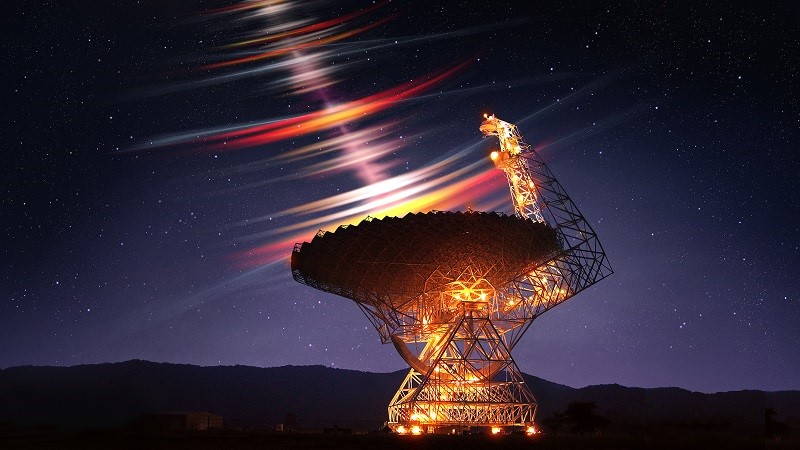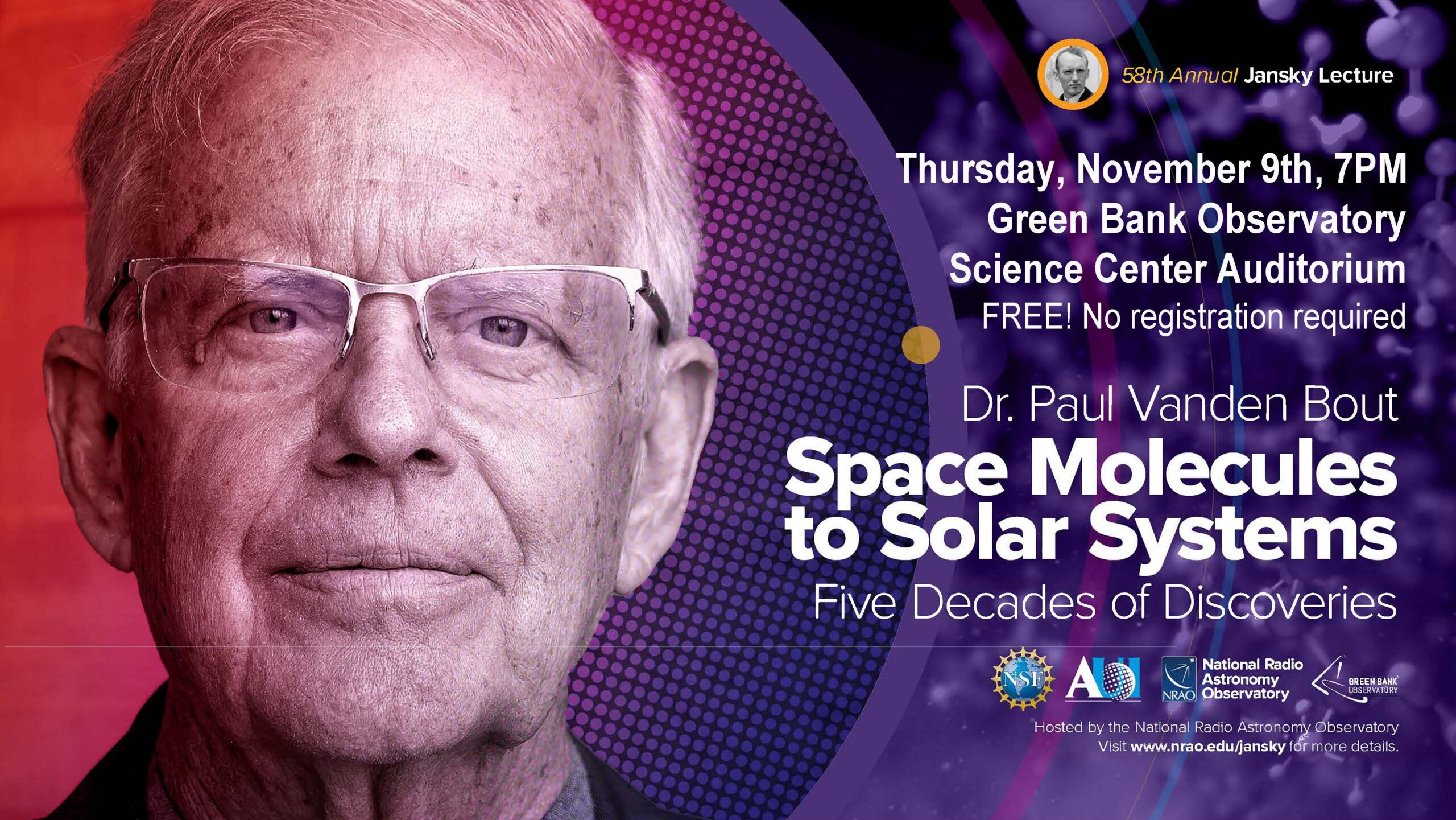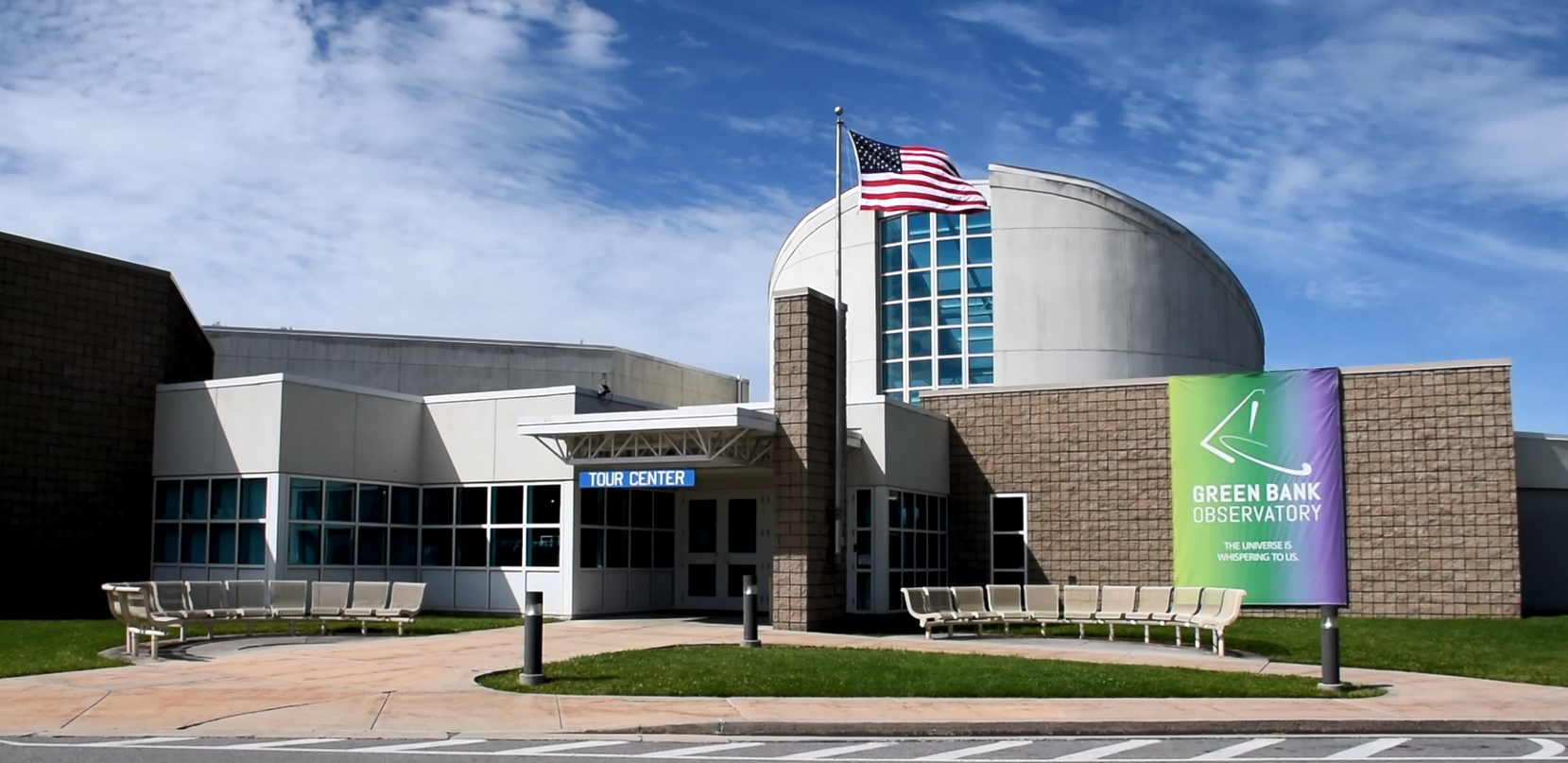-
Visit Test SEt
Hours Include Hours for Science Center, Gift Shop, Café, etc. Admission Admission to the Science Center and Exhibit Hall Free! Guided Bus Tour: includes a presentation and bus tour (about 1 hr) $10/person, ages 6+ Presentation without bus tour (30 minutes) $5/person, ages 6+ Children 5 and under Free! Veterans and Active Duty Service Members […]
-
GAS — Green Bank Ammonia Survey
The Green Bank Ammonia Survey (GAS) is an ambitious legacy survey to map emission from the 23 GHz NH3 inversion transitions toward all the northern Gould Belt star forming regions with Av > 7. The Gould Belt is a ring of young stars and star-forming regions that contains nearly all the ongoing, predominantly low-mass star […]
-
New type of Fast Radio Burst discovered in Green Bank Telescope data
Eight ultra-fast bursts lasted only ten millionths of a second or less An international team of researchers have discovered radio pulses from the distant universe that last only millionths of a second. They found these microsecond bursts after a meticulous examination of archival data from the National Science Foundation’s Green Bank Telescope. It’s unclear how […]
-
Five Decades of Groundbreaking Millimeter Astronomy—From Discovering Molecules in Space to Imaging New Solar Systems
Associated Universities, Inc. (AUI) and the National Radio Astronomy Observatory (NRAO) have awarded the 2023 Karl G. Jansky Lectureship to Dr. Paul A. Vanden Bout, Senior Scientist, Emeritus at NRAO. The Jansky Lectureship is an honor established by the trustees of AUI to recognize outstanding contributions to the advancement of radio astronomy.
-
Green Bank, WV location of some of the most fundamental discoveries in astrophysics and astronomy
American Physical Society Recognizes GBO as Historic Site The American Physical Society has designated the National Science Foundation’s Green Bank Observatory (GBO) as a Historic Site, recognizing it as the location of some of the most fundamental discoveries in astrophysics and astronomy.
-
Science Center Hours and Admissions
Current Hours. Please see below for seasonal hours and holiday closures. Science Center Starlight Café See menu for hours of availability. Tour Schedule Guided Site Tours of the Observatory campus are offered on open days at 10:00, 12:00, 2:00, and 4:00 as availability allows; tours last approximately 1 hr. Tickets may be purchased in advance […]
-
GBT Will Create New Sky Map
Jack Singal, a physics professor at the University of Richmond, has received a $589,939 grant from the National Science Foundation to produce the first calibrated map of diffuse radio emission over nearly the entire sky.
-
WVU Astrophysicist, Dr. Maura Mclaughlin, presents on behalf of NANOGrav at National Science Foundation (NSF) Meeting
Story by Elizabeth Rhodes











